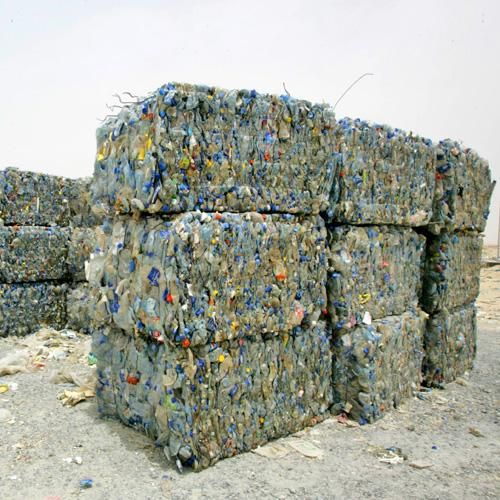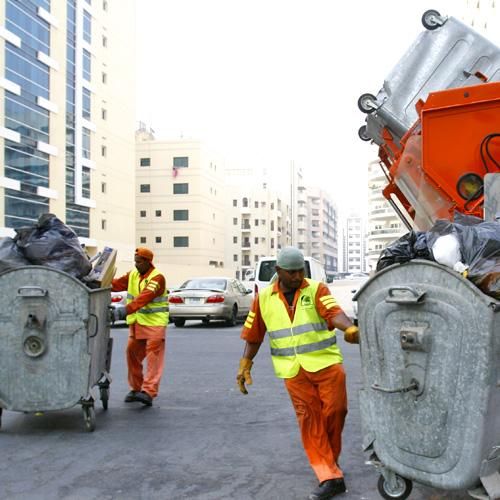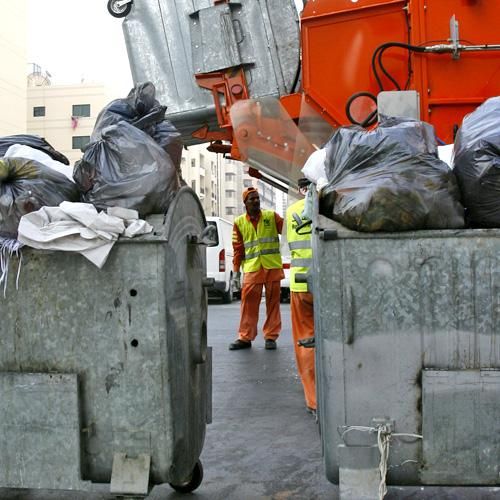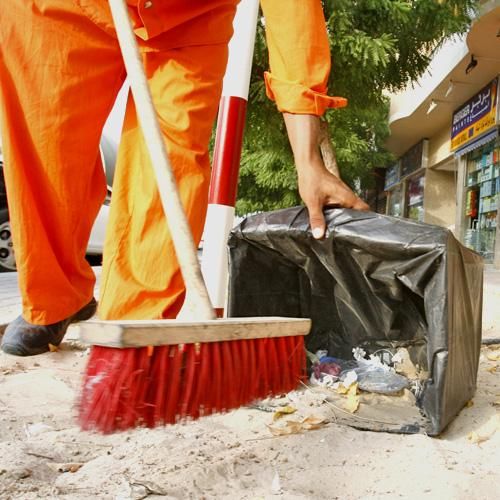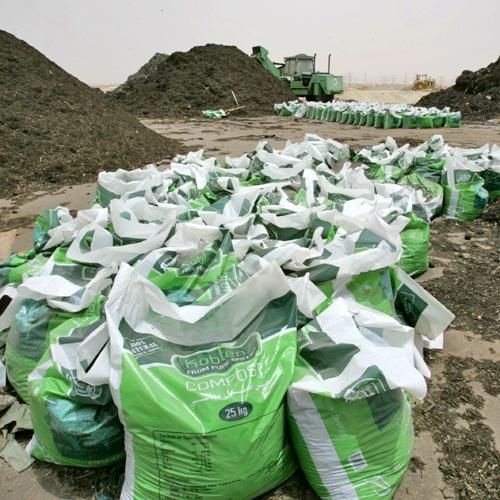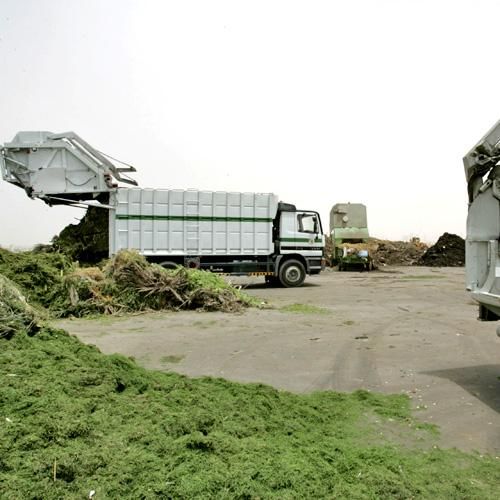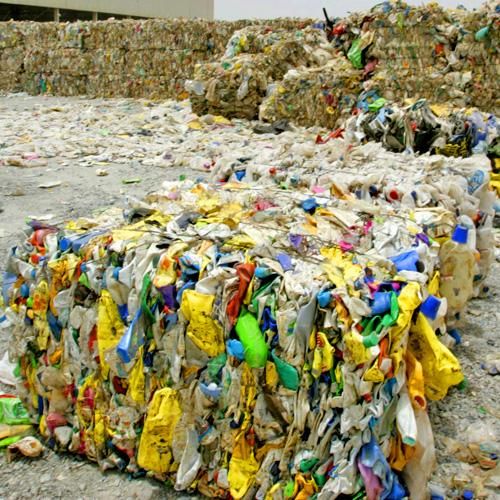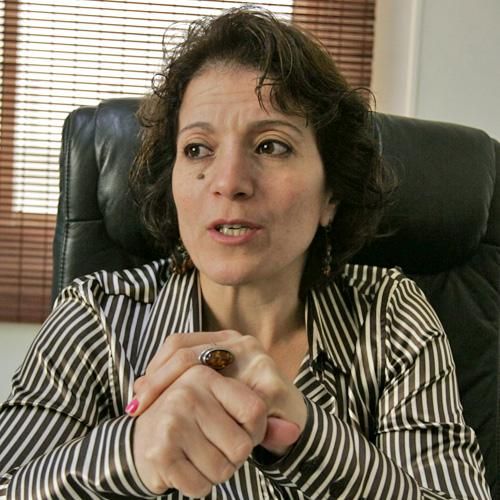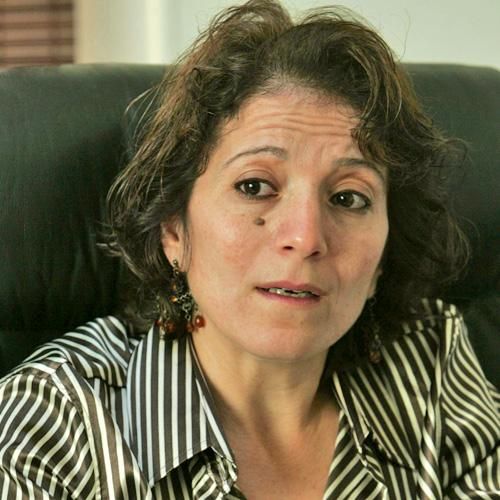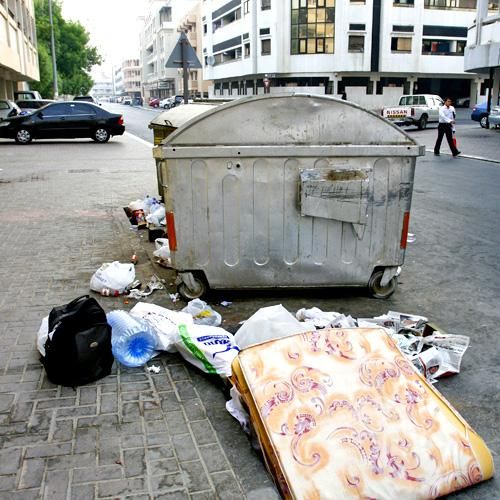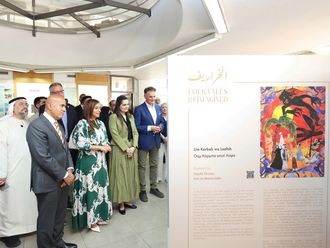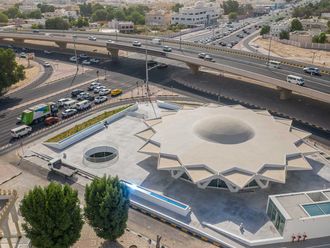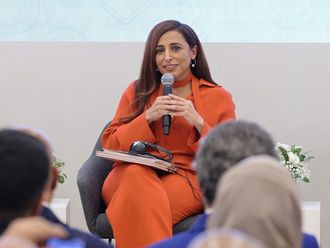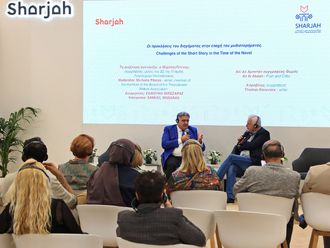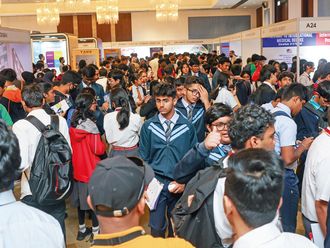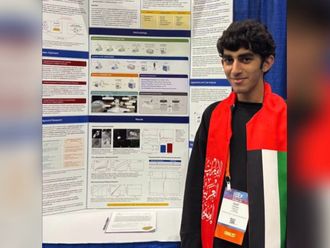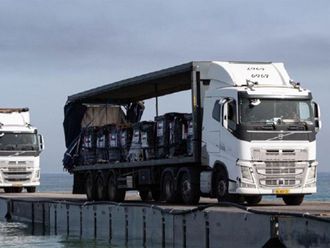Dubai residents are throwing away more garbage than ever before, but year-upon-year increases in per-person disposal rates are shrinking, suggest new figures obtained by XPRESS from the Dubai Statistics Centre.
More trash
In 2007, each of Dubai's 1.5 million residents threw away 2.19 tonnes of household waste or 140 kilogrammes compared to 2.05 tonnes per capita the year before.
The figures place Dubai among some of the worst throw-away societies on the planet.
However, the 13 per cent per capita hike in 2007 garbage disposal is less than the 19 per cent jump in 2006 and less than the 24 per cent jump in per capita garbage disposal in 2005, statistics reveal.
Hassan Al Makki, Director of Waste Management for Dubai Municipality, told XPRESS: "We are in the process of hiring a consultant to develop various waste minimisation strategies in the emirate of Dubai."
To collect the waste, Al Makki said the municipality "employs a modern fleet of about 380 vehicles" staffed by 3,000 employees who conduct daily pickups of household garbage from 24,000 garbage bins across Dubai.
In total, 3.34 million tonnes of solid waste was collected last year – an increase of 438,327 tonnes from 2006 figures.
Recycling gains
In only its fourth year of operation, private waste management firm Tadweer says it is making serious recycling gains against the growing tide of garbage being produced daily in Dubai.
As the municipality's exclusive 20-year contractor for solid waste, Tadweer is now sorting out about one-fifth (2,000 tonnes) of the 10,390 tonnes of daily municipal solid waste flowing from homes and industries.
Tadweer has a contract to process 4,000 tonnes every day.
The balance of 8,000 tonnes of garbage collected from municipal dumpsters is being buried in landfills until preventative measures in future can be introduced to divert the stream.
The Tadweer effort does not currently process waste generated from construction, demolition and horticulture sectors – other independent firms are working to reuse material from those sectors.
No small feat
Tadweer spokeswoman Linda Chaaban said that sifting through the avalanche of household debris every day is no small task at their one square-kilometre site near International City.
Chaaban said the Tadweer waste sorting plant and its first processing line opened in March 2006 at which 100 employees sifted through thousands of garbage bags per day. Recycled materials are then cleaned and baled for shipment to buyers as far away as China, Chaaban said.
A second sorting line was opened inside the plant in May this year and Tadweer has now grown to employ more than 400 people. A third processing line should be operational by mid-2009 to help Tadweer process another 2,000 tonnes per day.
Getting this far is a big achievement, Chaaban said, given that Tadweer started from scratch and had no models on which to base its first sorting line.
Exclusive contract
"We're still the exclusive domestic sorter and recycler for the municipality," she said.
On a tour of the Tadweer recyclables warehousing facility, Chaaban showed XPRESS the end result of the firm's constant efforts to retrieve materials from the waste stream. Every day, paper, cardboard, plastic bottles, plastic bags and metals are collected, cleaned and then stockpiled for re-entry into the world recycling market. Massive bales of compacted water bottles await shipment at the warehouse.
Nearby, other large bales of compacted mixed plastics are strong evidence that the Tadweer plan is working to divert waste from landfills in Al Aweer, Jebel Ali and Al Qusais.
And while recycling traditional materials continues to pay the bills at Tadweer, Chaaban said the firm is now considering a plan to capture organic waste as well from the garbage stream.
Organic waste
"What we're planning to do is composting for organic waste. That should pick up another 35 to 40 per cent of the total daily waste," Chaaban said.
Organic waste is essentially disposed food from homes and restaurants across the city. Chaaban said that the wet material will be collected through a special screening process on the newer lines and will then be gathered in piles at Tadweer's site.
The piles will be periodically watered down to speed up the decomposition process to get a fine dry fertiliser ideal for use in gardens and agricultural growing operations, she said.
Some super recycling tips
- Avoid purchasing overly-packaged goods
- Re-usable containers are better for homemade lunches taken to work or school
- Donate magazines after use
- Use your own bags for shopping
- Re-use containers
- Compost vegetable peelings, cut flowers, shredded newspaper and grass cuttings
- Give unwanted clothes, shoes, books and eyewear to charity shops
- Recycle printer cartridges
- Take aluminium foil, old phone books, glass bottles and jam jars to your local recycling points
Source: World Wildlife Fund (WWF)
From trash to cash
Tadweer has already made major strides to collect Dubai's green waste and convert it into nutrient-rich compost material.
Every day, 100 tonnes of green municipal waste from grass cuttings, hedge trimmings and tree prunings are being collected by special Dubai Municipality trucks and delivered to the Tadweer site in Al Aweer.
Tadweer has designated a large area where cuttings are piled and left to decompose. The final product is a rich-brown compost material that is bagged for sale to gardeners across the UAE.
The green compost does not have a pungent odour, said Chaaban. Given the large-scale green building projects across Dubai and their companion green belts, Chaaban expects the new green compost will be in big demand and will be a solid money maker for the firm.
Kerbside recycling
Despite the lack of a municipal kerbside recycling programme in Dubai, Tadweer is encouraging industries and schools to separate recyclables at source. To date, Tadweer "has 25 clients separating at course", said Chaaban.
Six schools have signed on, as have private firms such as Ibn Battuta Mall.
Dry recyclables such as glass, metals, plastics and paper are separated and put in specially-designed bins which are then transported to the Tadweer site.
Emaar at the fore
Emaar's Earth Watch kerbside programme in the Arabian Ranches, Meadows and Springs, Emirates Hills and the Greens has seen a huge growth in tonnage with residents separating materials before putting them for collection.
In its first year, the programme grew from one tonne of collected materials to 15 tonnes from 12,500 villas and 4,000 flats.
Union Paper Mills also does its level best every day with 800 workers collecting cardboard and paper products that have not been contaminated by other garbage.
Six steps to garbage disposal in Dubai
- A householder deposits the garbage bag in a municipal dumpster
- Municipal garbage trucks collect waste from the dumpster
- Trucks deliver full waste load to the Tadweer sorting plant in Al Aweer
- Garbage bags are put on the sorting line where workers extract recyclables from organic waste
- Saved recyclables are sent to warehouses and put in bales for shipment abroad
- Leftover organic waste is shipped to landfill sites in Dubai


